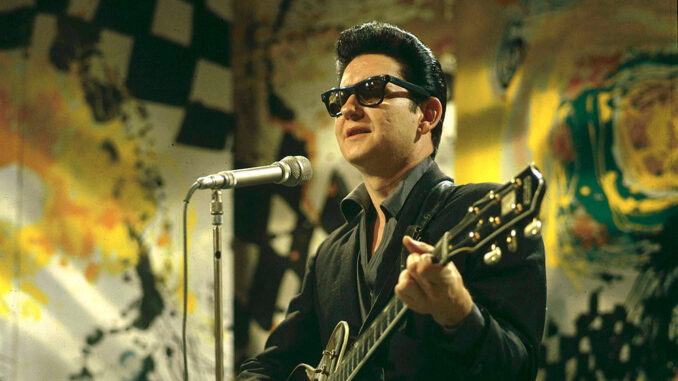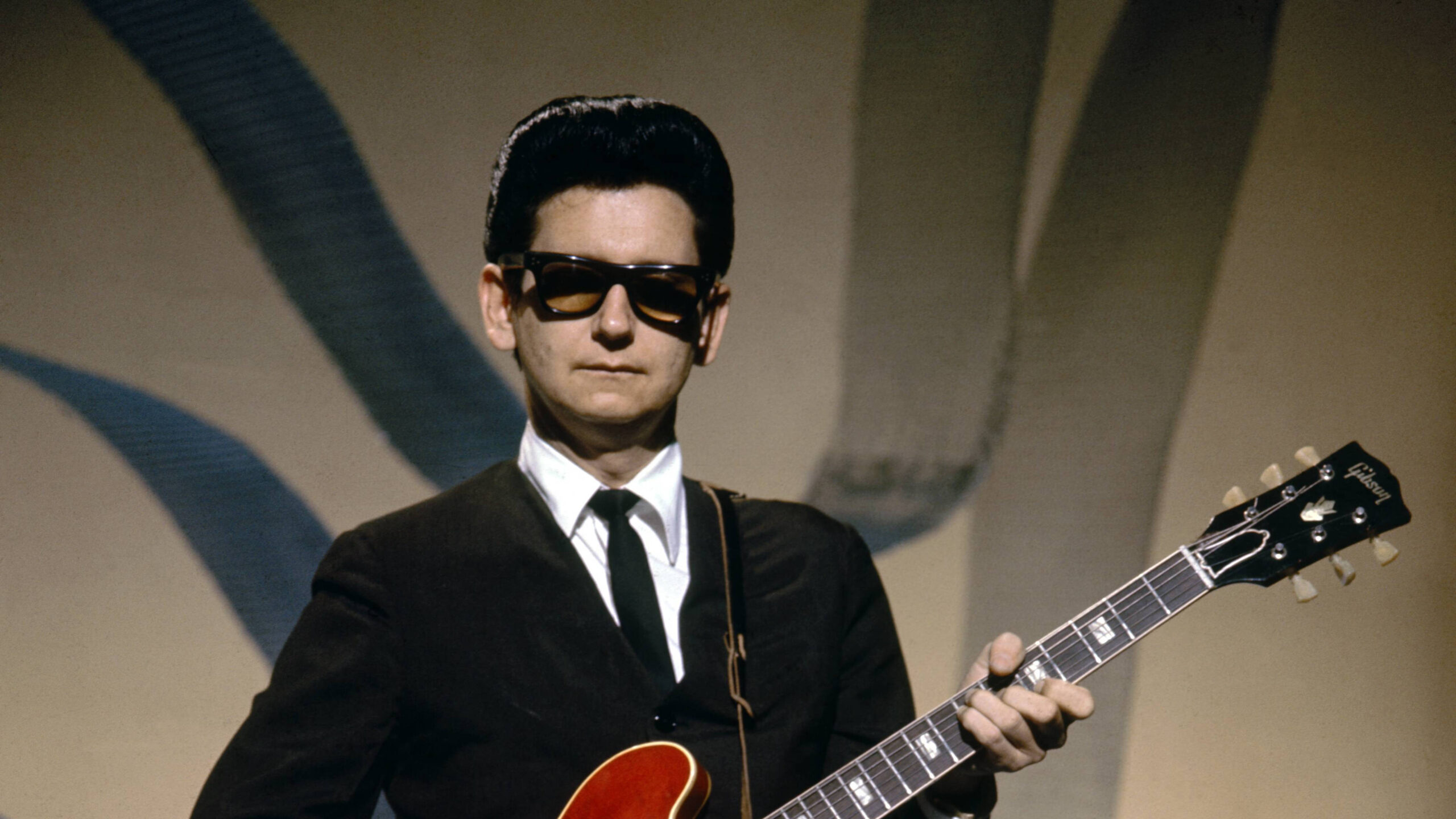
Roy Orbison just announced a devastating news…….
The Top 10 All-Time Roy Orbison Songs
The Top 10 Greatest Songs Ever Composed by Roy Orbison
Famous American singer-songwriter and musician Roy Orbison was renowned for his impactful contributions to country, rock and roll, and rockabilly music in addition to his expressive and strong voice. Orbison, who was born in Vernon, Texas, on April 23, 1936, became well-known in the late 1950s and early 1960s thanks to hits like “Oh, Pretty Woman,” “Only the Lonely,” and “Crying.”

Orbison gained the moniker “The Big O” and became known as one of the most recognizable voices in popular music thanks to his unusual three-octave vocal range, emotional lyrics, and dramatic balladry. His songs frequently dealt with themes of heartbreak, love, and
Orbison received many honors during his career, including inductions into the Songwriters Hall of Fame, the Nashville Songwriters Hall of Fame, and the Rock and Roll Hall of Fame. Orbison endured personal tragedies and professional setbacks, but his enduring legacy has influenced and will continue to influence fans and musicians for generations to come. He died on December 6, 1988, but his music never goes out of style and never fails to enthrall listeners everywhere.
One of Roy Orbison’s most well-known songs, “Oh, Pretty Woman,” was released in 1964. Orbison and Bill Dees wrote the song, which has an unusual guitar riff and his trademark operatic vocals. The song “Oh, Pretty Woman” became an enormous commercial success, topping charts all over the world, thanks to its memorable hook and catchy melody.

The narrative of the song is about a man who is instantly enthralled with a stunning woman he sees strolling down the street. The song has a catchy rhythm and an upbeat pace, but the lyrics also express desire and longing.
Pop, R&B, and country music are blended together to create “Oh, Pretty Woman,” which is defined by its rock and roll influences. Orbison became a global celebrity and cemented his status as one of the most unique voices in rock music history with the song’s success. It is frequently recognized as one of the best rock and roll songs of all time and continues to be a timeless classic.
Roy Orbison recorded a song titled “Crying” in 1961. Orbison and Joe Melson wrote the song, which went on to become one of his signature tunes.
Orbison delivers strong, heartfelt vocals on the song, which is supported by a dramatic orchestral arrangement. In the ballad “Crying,” Orbison bemoans the breakup of a relationship and talks about heartbreak and lost love.
With a top 10 ranking on the Billboard Hot 100 chart, “Crying” was a commercial success. It is regarded as one of Orbison’s most well-known songs and has been covered by many musicians over the years. The song has become a classic of the rock and roll era due to its eerie melody and Orbison’s vocal performance.
Roy Orbison’s ethereally lovely song “In Dreams” was first released as a single in 1963 and subsequently appeared on his album of the same name. The song, which was written by Orbison himself, is renowned for its opulent orchestration, dreamy atmosphere, and Orbison’s emotive and powerful voice.
In the song “In Dreams,” Orbison expresses his desire to be reunited with a past love in his dreams, delving into a theme of longing and desire. The emotional impact of the song is heightened by its lyrical poetry and vivid imagery, which evoke feelings of nostalgia and melancholy.

Dramatic orchestral arrangements with sweeping strings and ethereal backing vocals define “In Dreams.” Over the orchestration, Orbison’s unique voice soars, evoking a depth of emotion that connects with listeners.
One of Orbison’s most well-liked and timeless hits, the song has received widespread praise for its beauty and emotional impact. “In Dreams” is a timeless masterpiece in the world of popular music, having been covered by countless artists and featured in a number of films and television shows.
Roy Orbison wrote and released the song “Only the Lonely” in 1960. One of Orbison’s first big hits, it was penned by Orbison and Joe Melson.
With a powerful vocal performance that captures the anguish of lost love, Orbison’s ballad “Only the Lonely” is about heartbreak and loneliness. The dramatic arrangement and eerie melody of the song are enhanced by the emotional impact of the backing vocals and strings.
A commercial hit, “Only the Lonely” peaked at number five on the Billboard Hot 100 list. It is regarded as one of Orbison’s signature songs and helped make him a major recording artist. Orbison’s outstanding vocal performance and the song’s timeless appeal have elevated it to the status of rock and roll classic.
Roy Orbison’s timeless hit “Running Scared” was first available as a single in 1961 and was subsequently added to his album “Crying.” Orbison and Joe Melson co-wrote the song, which is well-known for its dramatic orchestration, compelling narrative, and strong vocals.
In the movie “Running Scared,” a man fears losing his sweetheart because he thinks she will go and find someone else. The protagonist of the song’s desperation and vulnerability are aptly captured by Orbison’s emotive delivery and soaring falsetto.
Musically, “Running Scared” has a strong arrangement with a sumptuous orchestral accompaniment that intensifies to a powerful climax. The staccato strings and pounding drums that break up the song’s driving rhythm heighten the sense of urgency and tension in the song.
“Running Scared” reached the top of several charts worldwide and brought Orbison widespread praise. It was also a commercial and critical success. It is still regarded as one of his most well-known and enduring songs due to its emotional depth and timeless appeal.
The narrative of “Running Scared” centers on a man who fears losing his sweetheart because he thinks she will go and find another. The protagonist of the song is portrayed as vulnerable and desperate, and Orbison’s soaring falsetto and emotive delivery perfectly convey these feelings.
The musical arrangement of “Running Scared” is dynamic and has a rich orchestral accompaniment that rises to a powerful crescendo. Staccato strings and pounding drums add to the song’s driving rhythm, which heightens the sense of urgency and tension.
Orbison received widespread praise for his hit song “Running Scared,” which peaked at the top of several national charts and was a commercial and critical success. Because of its enduring appeal and profound emotional depth, it continues to be one of his most cherished and enduring songs.
Roy Orbison released the song “You Got It” in 1989 as part of his *Mystery Girl* album. Orbison wrote the song in collaboration with Jeff Lynne and Tom Petty, who also produced it.
Pop-rock tune “You Got It” is lively and catchy, featuring a timeless melody reminiscent of Roy Orbison. With Orbison singing about how his partner has everything he could ever want, the lyrics are about love and admiration.

Commercially successful, “You Got It” peaked at number 10 on the Billboard Hot 100 list. It helped reintroduce Orbison to a new generation of listeners and was his first hit single in over 20 years. With its catchy melody and Orbison’s mellow vocals, the song stood out as a highlight on *Mystery Girl*.
Roy Orbison wrote the iconic song “Dream Baby (How Long Must I Dream)” in 1962. The song, which was written by Cindy Walker, highlights Orbison’s unique voice, expressive delivery, and knack for creating catchy melodies.
The narrative of “Dream Baby” centers on a man who, yearning for his beloved, expresses his wish to see her again in his dreams. Orbison’s poignant vocals evoke feelings of nostalgia and yearning, as does the song’s lively tempo and catchy rhythm.
“Dream Baby” has a strong rock and roll beat that is enhanced musically by twangy guitars and a vivacious piano accompaniment. The song stands out in Orbison’s discography due to its contagious energy and melody.
The song “Dream Baby” achieved commercial success, peaking at number 10 on charts in the US and the UK. It is still regarded as a classic, appreciated for both Orbison’s outstanding vocal performance and its ageless appeal.
Roy Orbison and Joe Melson wrote the song “Blue Bayou.” One of Orbison’s most well-known songs, it was first recorded by him in 1963.
With a sweeping orchestral arrangement and Orbison’s signature vocals, “Blue Bayou” is a country-inspired ballad. Orbison sings about wanting to go back to a place called Blue Bayou where he can find happiness and tranquility in the lyrics, which are full of longing and nostalgia.
Commercially successful, “Blue Bayou” peaked at number thirty on the Billboard Hot 100 list. Since then, numerous musicians have covered it, and it has grown to become a pop and country music classic. Fans of Orbison’s music love this song because of its timeless melody and his emotive delivery.
Roy Orbison’s 1963 rock and roll hit “Mean Woman Blues” is a classic. The song, which was written by Claude Demetrius, has a catchy melody with blues influences and Orbison’s signature vocals.
In “Mean Woman Blues,” Orbison sings about a woman who is causing him trouble and heartache, describing her as a “mean woman” who brings nothing but trouble. The song’s lyrics reflect the frustration and angst of dealing with a difficult relationship, while its upbeat tempo and lively rhythm add to its energetic appeal.
Musically, “Mean Woman Blues” is characterized by its driving rockabilly beat, twangy guitar riffs, and honky-tonk piano. Orbison’s powerful vocals soar over the infectious groove, conveying a sense of urgency and emotion.
“Mean Woman Blues” was a commercial success, reaching the top 5 on the charts in both the United States and the United Kingdom. It remains a beloved classic in Orbison’s catalog, admired for its catchy melody, spirited performance, and timeless rock and roll vibe.
“It’s Over” is a song by Roy Orbison, released in 1964. It was written by Orbison and Bill Dees and became one of Orbison’s most successful songs.
“It’s Over” is a dramatic ballad about the end of a relationship, with Orbison’s powerful vocals conveying heartbreak and sadness. The song features a lush orchestral arrangement, with strings and backing vocals adding to its emotional impact.
“It’s Over” was a commercial success, reaching the top 10 on the Billboard Hot 100 chart. It has since been covered by many artists and is considered one of Orbison’s signature songs. The song’s haunting melody and Orbison’s masterful vocal performance have made it a classic of the rock and roll era.

Sweet blog! I found it while searching on Yahoo News. Do youu have any tips on how to get listed in Yahoo News?
I’ve been trrying for a while but I never seem to get there!
Thank you
Here is my website: https://vavadaonlinecasino.evenweb.com/